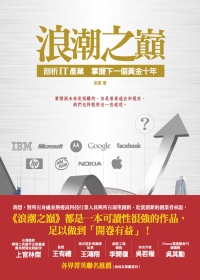麥當勞瑞典勁敵 膽敢叫客戶少吃肉
提倡少吃肉的風氣,還只是麥斯漢堡多年來聚焦永續經營策略的其中一項措施。始於2000年,在「健康又節能」的政策前提下,它挺身帶動許多業界紛紛跟進的節能做法。
以小搏大最好的方法是做巨人不做的事,而這也是瑞典速食業者——麥斯漢堡(Max Hamburgers)連續八年打敗國際品牌麥當勞(McDonald's),穩坐瑞典最受歡迎寶座的原因。根據瑞典市調公司ISI Wissing評比,麥斯漢堡大贏麥當勞一倍以上,原因是大聲「呼籲客戶少吃肉」。
提倡少吃肉的風氣,還只是麥斯漢堡多年來聚焦永續經營策略的其中一項措施。始於2000年,在「健康又節能」的政策前提下,它挺身帶動許多業界紛紛跟進的節能做法。
首先,麥斯漢堡就從食材下手。減少使用脂肪、鹽分及糖分、禁用基因改造食材以及反式脂肪;提供無糖飲料及五穀麵包,而且90%食材皆取自於當地。
第二步,就是在2006年時裝設節能屋頂,並且使用風力發電,因此,全年能源的使用率大降了20%。隔年,麥斯漢堡聘請非營利環保組織自然程序(The Natural Step)為公司檢測體質,並且具體量化速食業影響全球氣候變遷的程度。
麥斯漢堡所得到的調查結果,與現在各界認知大同小異:全球18%的溫室氣體是來自於肉品產業,牛肉漢堡更是眾矢之的,碳排放量高達1.9公斤,比起魚漢堡的0.5公斤、雞肉漢堡的0.4公斤,顯得相當驚人。但這可是麥斯的明星產品!公司高層在反覆辯論後,乃決定改變政策,犧牲利潤,增加素食產品、換取客戶認同永續經營的理念。
麥斯漢堡先試著推出包括蔬菜漢堡與中東口味的法拉費三明治(falafel)等素食新菜單,然後又選在非洲國家烏干達造林,以沖銷生產肉品所製造出的二氧化碳。至今已栽種九萬棵樹。
此外,麥斯漢堡更開食品業界之先例,2008年首創在菜單上加註每一項餐點的「二氧化碳排放量」,不僅引起包括《哈佛商業評論》(Harvard Business Review)、英國廣播公司(BBC)等國際媒體讚譽,消費者也立即給予正面的回應,估計來自於低碳菜單的營業額,上升了超過30%。
檢視成績單,麥斯漢堡的獲利率平均達11%至15%,大幅領先龍頭麥當勞的二%至五%;與2003年相比,獲利成長了五倍;而且2011年,市占率成長兩倍。對於這一切,執行長貝格佛斯(Richard Bergfors)歸因為:「永續經營政策,成了有史以來最賺錢的提議!」
永續經營為什麼能夠引起消費者正面回應?首先,全球媒體網絡傳立媒體(Mindshare)的調查報告直指,自2007年至2009年間,麥斯漢堡的客戶忠誠度成長了27%,因為它滿足了92%瑞典人民亟欲了解與食品相關的「綠色數字(green credentials)」的渴望。
另一個更重要的因素便是成功開拓了新客層,那些以前從不想踏進漢堡連鎖店的素食主義者,現在反會上門點購節能素漢堡、豆子沙拉及草莓奶昔等。
暢銷書《綠色商機》(Green to Gold)的共同作者溫斯頓(Andrew Winston)指出:「品牌若定位在較高檔的利基市場,通常的確能取得較高利潤,但事實上麥斯漢堡的規模並不小,而且它祭出『棄大玩小』策略並未侵蝕利潤。」
【文/梁安藍】
【2012/04/20《商業周刊》1273期;訂閱商業周刊知識庫;訂閱商業周刊電子版】
■一向以牛肉堡為主力商品的漢堡連鎖店,竟標示排碳量鼓勵顧客少吃肉以減少環境足跡,反倒替業者帶來錢潮商機,藉此躍為瑞典漢堡龍頭的Max Burgers,成了速食業發環保財的最佳例證。
■Max Burgers decided to do away with the kids'-meal boxes and the sales of
kids' meals rose. The Sweden's No.1 burger chain had turned sustainability into a selling point.
瑞典速食業者馬克斯漢堡(Max Burgers)2008年接獲2個孩子的媽的投訴信,要求速食店別再用盒子裝兒童餐,因為每次得將盒子丟進資源回收桶讓她很困擾。沒想到這個奇怪的要求業者居然照辦,以垃圾減量為由,旗下75家門市的兒童餐全面棄用盒子包裝,不但沒有顧客抱怨,兒童餐銷量還不減反增。
事實上,這家瑞典漢堡連鎖龍頭的環保舉措不只這一樁,2006年起馬克斯便致力減少環境足跡,包括在12家新門市安裝節能設施,購買風力發電機,為了抵消該公司排放二氧化碳對環境的衝擊,還在非洲烏干達植樹。
尤其引人注意的是,馬克斯2008年開始便在菜單上清楚標示每項產品製程的排碳量,牛肉堡的排碳量比蔬菜堡高出5倍,較魚肉三明治多出6倍,馬克斯希望藉此提醒消費者做出更合乎環保的選擇。
綠色行動 商機驚人
這項菜單標明排碳量的作法果然奏效,愈來愈多馬克斯的顧客改點牛肉堡以外的產品,店內低碳產品的銷量躍增16%,馬克斯的市場競爭力也隨之增強,2005到2011年間,馬克斯新開45家門市,在瑞典的市占率成長逾1倍。
根據市調公司ISI Wissing針對250個速食品牌調查,馬克斯2008年大敗麥當勞,成為瑞典最受歡迎的漢堡連鎖店。
此外,挾16%的營運獲利成長率,馬克斯也是瑞典最賺錢的漢堡業者。馬克斯去年首度在挪威開設分店,展現事業版圖向全歐擴張的企圖心。
全球知名媒體服務公司Mindshare調查顯示,馬克斯的綠色行動成功擄獲消費者認同,2007到2009年的顧客忠誠度上升27%。讓馬克斯取得市場優勢的最大關鍵在於吸引到新客群,從不踏進速食店的素食者,現在會光顧馬克斯買蔬食堡、豆子沙拉和草莓奶昔。
環保企業 邁向全球
打著綠色環保旗號而成功創造利潤的速食業者不單只有馬克斯。像美國墨西哥菜連鎖餐廳Chipotle,食材多取自當地且近半數豆子向有機農場採購,自2006年起營收暴增2倍至20億美元,現今有超過1,200家分店。標榜選用沒有注射賀爾蒙和抗生素肉品的紐奧良披薩連鎖店Naked Pizza,已著手全球展店計畫,目標從目前的24家擴展為500家。
幾家大型食品業者也展開測量排碳量的實驗計畫,英國最大洋芋片製造商Walkers與可口可樂監控在英國生產過程的碳足跡,此舉不但有助提升企業形象,更可節省成本。
產品上加註排碳量之類的環保創舉,雖在速食業界引發風潮,卻難以成為招徠美國顧客的賣點。據2010年的調查,僅27%的美國消費者認為餐廳業者具環保意識很重要。
馬克斯漢堡主管環保策略的拉夏恩斯(Par Larshans)指出,「2008年我們提出標示排碳量的構想時,很擔心被其他同業捷足先登。」但4年過去了,追隨馬克斯的業者並不多,他說,「我不明白為什麼沒有更多地方跟進,對我們來說這非常有利於生意。」
- 2012-04-22 00:45
- 工商時報
- 【吳慧珍】
In late 2008, a fast-food burger restaurant in Sweden received an odd complaint letter. It was from a mother of two, asking the chain to get rid of the boxes that its kids' meals were packaged in. Her children only wanted the fries and toys, she said, and she was annoyed at having to throw the boxes straight into the recycling bin. It was an unusual request with an unusual outcome. Max Burgers — Sweden's No. 1 burger chain — decided to do away with the kids'-meal boxes in all of its 75 restaurants, explaining to customers that it was reducing waste. No one complained. In fact, sales of kids' meals rose. The company had turned sustainability into a selling point.
Max didn't just get rid of its kids'-meal boxes, though. Since 2006, the chain has reassessed its entire enterprise, searching for ways to reduce its environmental footprint. It has installed energy-efficient grass roofs on 12 new restaurants and cut energy consumption by 20% company-wide. The chain buys only wind power and offsets all its carbon emissions by planting trees in Uganda. And in 2008, Max started putting CO2 labels on its menus, quantifying exactly how much carbon dioxide, from field to fryer, is emitted in making each dish. "One of the problems being a burger business is, of course, the beef," says Max's chief sustainability officer, Par Larshans, noting that the meat industry is responsible for about 18% of global greenhouse-gas emissions. By showing that its Grand de Luxe Cheese 'n' Bacon beef burger produced five times more carbon dioxide than its vegetarian burger and six times more than its fish sandwich, Max hoped to nudge customers toward a more sustainable choice.
(SPECIAL: Heroes of the Environment)
It worked. Customers started eating more nonbeef burgers, causing sales of the low-carbon alternatives to jump by 16%. Meanwhile, Max began eating up the competition. From 2005 to '11, the chain opened 45 new restaurants and more than doubled its market share in Sweden. In 2008 — the year it put its carbon labels on menus — Max became Sweden's most popular burger chain, according to a survey of 250 brands carried out by the market-research firm ISI Wissing, trouncing McDonald's despite the fact the American chain has three times as many restaurants in the country. With a 16% operating profit, Max has also become the most profitable burger franchise in Sweden. And after opening its first franchise in Norway last year, it's eyeing expansion across Europe.
So how did the company do it? For one thing, the green initiatives seemed to boost customer loyalty, which increased by 27% from 2007 to '09, according to a survey by the global media network Mindshare. But the real key was drawing in new customers. Vegetarians who might never have set foot in a fast-food restaurant now drop into Max for its veggie Greenburgare, bean salad and a Lyxshake Jordgubb (strawberry milk shake).
Max Burgers isn't alone — fast-food chains elsewhere have also started burnishing their green credentials in recent years, with positive sales results. In the U.S., the Mexican-food chain Chipotle — which sources many of its ingredients locally and buys nearly half its beans from organic farms — has tripled its revenues since 2006 to $2 billion and now has more than 1,200 stores. Naked Pizza, which launched in 2009 in New Orleans and serves pies topped with hormone- and antibiotic-free meats, has plans to expand to 500 stores worldwide from its current 24. And in 2010, a vegetarian chain called Otarian launched in New York City and London with menus showing the amount of carbon dioxide emitted while making each food item (1.37 kg for a mushroom-quinoa burger) as well as the amount emitted by the typical fast-food equivalent (2.96 kg for a beef burger). Customers can store up the difference on a "Carbon Karma" card and redeem it for a free menu item of their choice.
Read more: http://www.time.com/time/world/article/0,8599,2111372,00.html#ixzz1wqE4HLvs
■從呂秀蓮到瑞典漢堡的共識【聯合晚報╱社論】
呂秀蓮卸下副總統的光環之後,近年來集中於關心環保議題,從考察日本核災而強力推銷非核家園主張,到「地球日」呼籲國人「少吃肉救地球」。和呂秀蓮英雄所見略同者,不在少數。
台灣早就有環保團體發起「周一蔬食日」運動。最近新聞報導一家瑞典漢堡連鎖店的「綠色速食」風潮,同樣值得注意。這家叫做「馬克斯漢堡」的速食店,多年來致力於環保議題,不但各門市安裝節能措施,行銷產品也身體力行,包括兒童餐棄用盒子包裝,以及產品標示排碳量,清楚顯示牛肉堡的排碳量比蔬菜堡高出5倍。
馬克斯漢堡的綠色行銷,獲得成功迴響,消費者大力支持。它的低碳產品銷量大增,營運獲利、品牌形象、顧客忠誠度都快速增長,甚至吸引了素食者前來光顧。也可見,如果努力讓一般消費者接受環保主張,節能減碳未必一定是「犧牲享受」的痛苦選擇或道德訴求,也可能變成企業營收的利基,「發環保財」可理直氣壯。
呂秀蓮作為政治人物時頗有強悍形象,她的政治主張也未必能引起全體國人的共鳴。但如今環保之路已是普世必然的方向,呂秀蓮以公眾人物的影響力,願意登高一呼,還是值得肯定。「少吃肉」看起來是個人的飲食偏好選擇,但這選擇不僅與環境存續的「大我」高度相關,與每個個體健康的「小我」也有利益影響。生產牛肉的畜牧產業,從砍伐熱雨帶林改種牧草餵養牛隻,到動物的排泄量製造高碳,漸漸被標示為一種對環境不友好的產業。而從需求面來說,人類消費如此大量的肉品乃是相當近代的現象,新近的營養指南也揭露了大量食肉的不良影響。
不管從那個層面而言,「少吃肉」值得作為環保的基本主張,和「少開車」、「少浪費」並列成為「三少運動」,應能發揮救地球的功效。台灣已有國中小校園開始響應「周一蔬食日」運動,甚至政府官員也加入推銷和示範。大家一起來,改善台灣在國際間具有的高排碳量的不良紀錄,這是愛台灣、愛地球的具體行動。
【2012/04/22 聯合晚報】



 留言列表
留言列表
